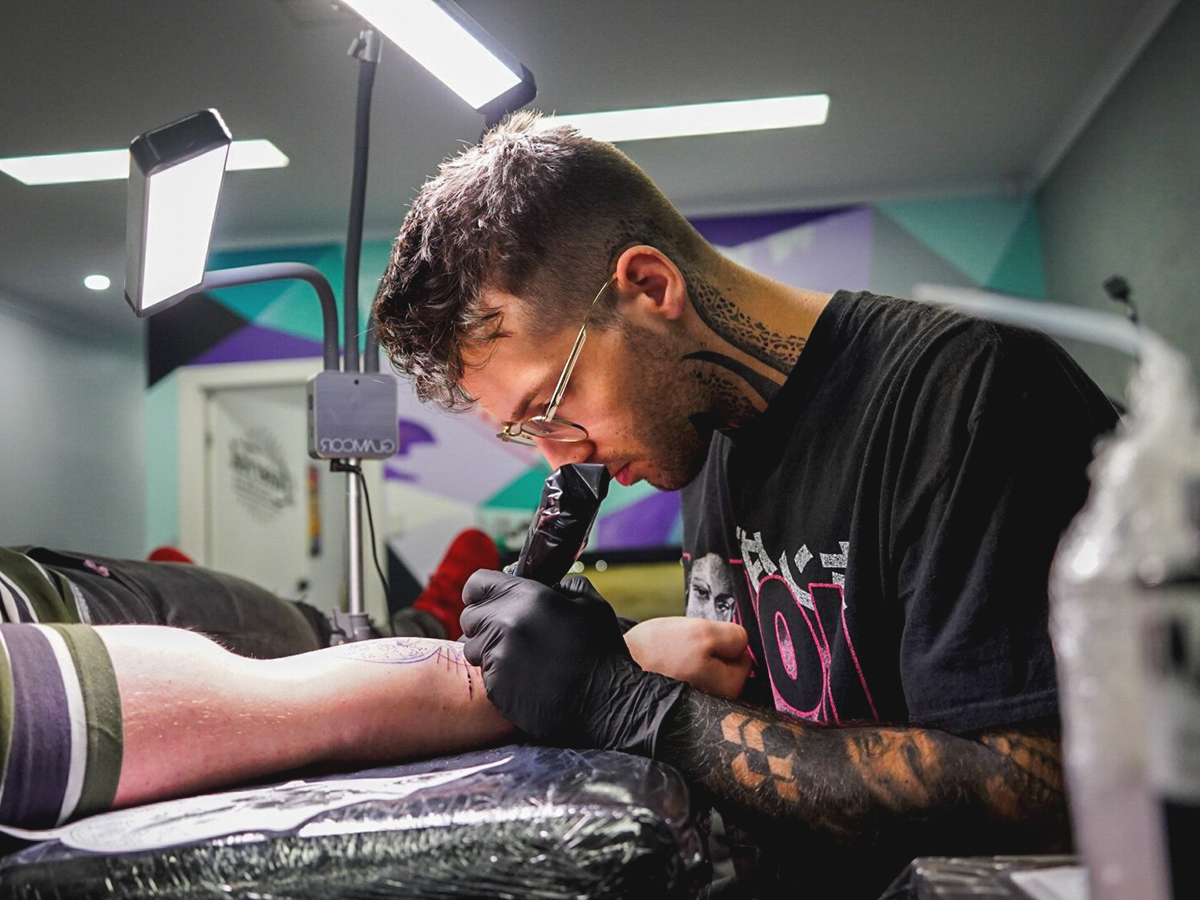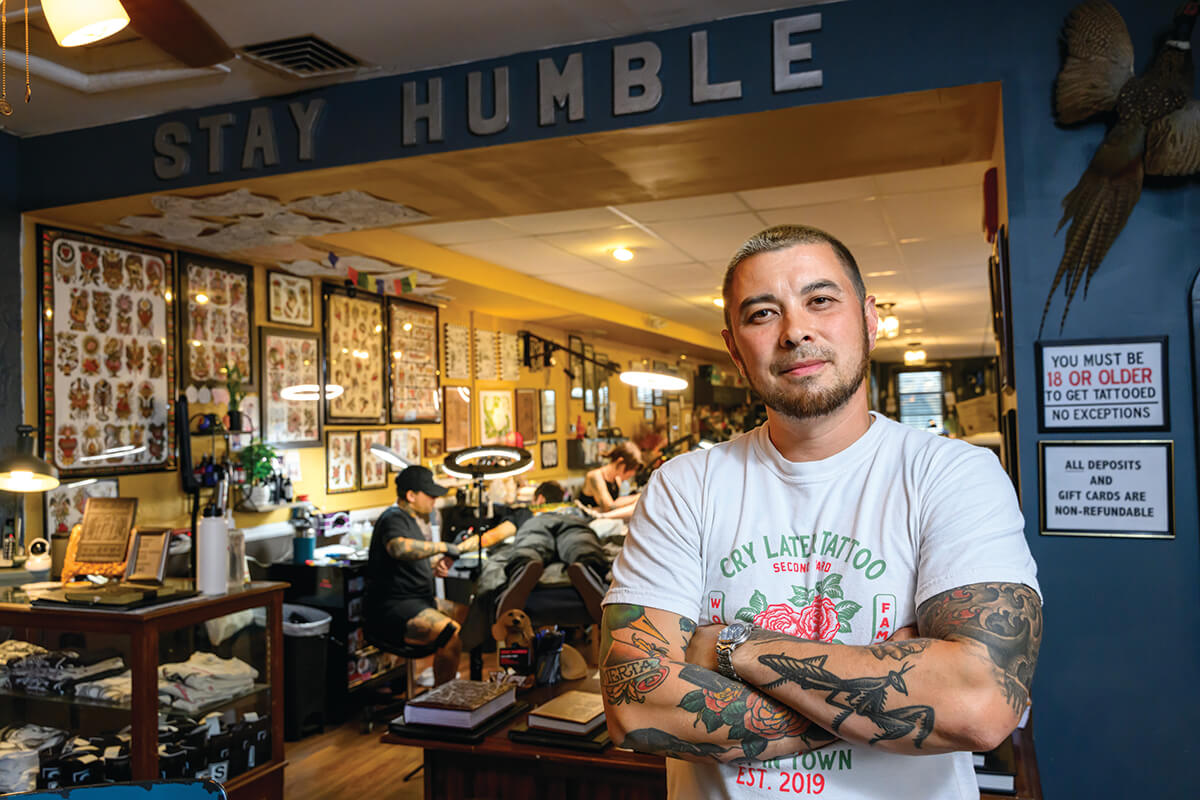Discovering the Meaning and Significance of Tattoos
Tattoos have been a kind of individual expression for centuries, with deep-rooted social and symbolic relevance. Discovering the definition and meaning behind tattoos is a fascinating trip right into the background of this art kind and its evolution in contemporary society. This expedition incorporates recognizing the social importance of tattoos, examining conventional tattoo designs and their meaning, and delving into the individual motivations behind getting tattooed. From old tribal markings to contemporary body art, tattoos serve as graphes of uniqueness, beliefs, and experiences. This write-up intends to explore the abundant tapestry of meanings and meaning that tattoos hold, dropping light on the varied and complex globe of body art.
The Background of Tattoos
Historically, tattoos have been a regularly recorded type of body alteration across different cultures and period. From ancient Egypt to Polynesia, tattoos have held considerable cultural and personal significances. In old Egypt, tattoos were viewed as a sign of condition and were primarily discovered on the bodies of high-ranking individuals such as clergymans and pharaohs. These tattoos often illustrated spiritual and religious symbols, acting as a connection to the divine. In Polynesian cultures, tattoos were utilized to communicate social status, lineage, and personal achievements. These detailed designs, called tribal tattoos, were produced using standard methods and held deep cultural importance.
Tattoos additionally played a significant duty in the history of Japan. Throughout the Edo duration, offenders were often marked with tattoos as a type of punishment, while the elite samurai class adorned their bodies with tattoos to signify their valor and commitment. In the Western globe, tattoos were at first related to seafarers and lawbreakers, yet with time, they obtained popularity among different subcultures and eventually became extra mainstream.
Today, tattoos remain to be a preferred type of self-expression and art. People choose tattoos to celebrate liked ones, reveal their interests or ideas, and celebrate important landmarks in their lives. The background of tattoos showcases the rich cultural and individual importance that these permanent marks hold, functioning as a testament to the enduring power of body art.
Social Value of Tattoos
Tattoos hold a considerable cultural value in different societies around the globe. Throughout history, tattoos have actually been made use of to represent social identity, social standing, and spiritual ideas. In lots of societies, tattoos serve as a kind of initiation or initiation rite, representing the change from teenage years to their adult years. They can also be a means to celebrate important life occasions or honor forefathers.
In Polynesian cultures, tattoos, understood as tā moko or tatau, are deeply rooted in tradition and hold enormous social significance. These detailed designs are believed to link people to their ancestors and their cultural heritage. In a similar way, in Maori society, facial tattoos, called moko, are seen as a representation of a person's genealogy and social standing within the community.
In Japan, tattoos have a long-lasting organization with the yakuza, the nation's the mob syndicate. These fancy body art pieces, referred to as irezumi, are viewed as an icon of commitment, valor, and honor amongst gang participants. It is important to note that tattoos in Japan still lug a preconception in several mainstream settings.
In native societies across the Americas, tattoos have been used as a means to reveal tribal association, spiritual beliefs, and individual success. Each icon and layout brings a distinct significance and narrates about the individual's connection to their society and area.
Today, tattoos continue to hold social relevance, not only from this source in conventional cultures however likewise in modern ones. They provide people with a method of self-expression, allowing them to display their social heritage, individual values, and artistic preferences. Tattoos can work as a visual depiction of one's identification and the unique journey they have embarked on.
Symbolism in Typical Tattoo Styles
Traditional tattoo layouts are abundant in importance and hold deep cultural significance. These designs have actually been given through generations and are rooted in the history and tattooist London customs of numerous cultures around the globe. Each element of a traditional tattoo style lugs its own meaning, creating a visual story that shows the ideas, values, and experiences of the wearer.
One usual standard tattoo design is the anchor. In marine society, the anchor stands for stability, safety, and toughness. It is frequently connected with seafarers and the concept of discovering a safe harbor in the middle of life's storms. Another popular standard layout is the rose, which represents charm, enthusiasm, and love. The rose can additionally stand for makeover and clean slates.
Animals are also frequently portrayed in traditional tattoo designs. For instance, the eagle signifies liberty, guts, and power, while the lion stands for toughness, management, and security. These pet concepts act as reminders of the qualities that individuals desire have or the features they understand.
Along with these specific icons, standard tattoo designs frequently integrate patterns and concepts that hold cultural relevance. These aspects may attract inspiration from native art, folklore, or religious beliefs, further enhancing the significance of the tattoo design.
Tattoos as Individual Expressions

For some, tattoos can be a way to honor loved ones or keep in mind important events. Others might pick tattoos that represent their cultural heritage or reveal their social or political sights.
The process of getting a tattoo itself can additionally be a meaningful experience. The act of choosing a design, collaborating with a tattoo artist, and withstanding the physical discomfort included can be seen as a transformative journey. This trip, from perception to conclusion, can grow the significance of the tattoo and make it much more personal to the person.
Evolution of Tattoo Meanings in Modern Culture

One significant shift in tattoo meanings is the focus on individual expression and individuality. People are now making use of tattoos as a method to express their one-of-a-kind identities and inform their stories. Tattoos are no much longer seen as plain body decorations; they have come to be powerful devices for self-expression and self-discovery.
Furthermore, tattoos are now viewed as a form of art. Numerous people select tattoos that mirror their gratitude for numerous imaginative designs and concepts - tattoo salons London. Tattoo artists have actually gotten recognition for their ability and imagination, adding to the growing approval of tattoos as a reputable art kind
Tattoos have actually likewise taken on new definitions in terms of social and cultural identification. People commonly pick tattoos that show their cultural heritage or worths. Tattoos can function as a way to link with one's origins or to show solidarity with a specific area or cause.
Verdict

During the Edo period, crooks were typically marked with tattoos as a type of penalty, while the elite samurai course decorated their bodies with tattoos to signify their valor and loyalty.Conventional tattoo layouts are abundant in symbolism and hold deep cultural meaning. Tattoo musicians have acquired recognition for their talent and creativity, adding to the expanding approval of tattoos as a legitimate art form.
In verdict, tattoos have a rich history and cultural importance, serving as individual expressions and symbols of various significances. Conventional tattoo designs typically carry deep importance, while modern society has seen an advancement in tattoo significances.